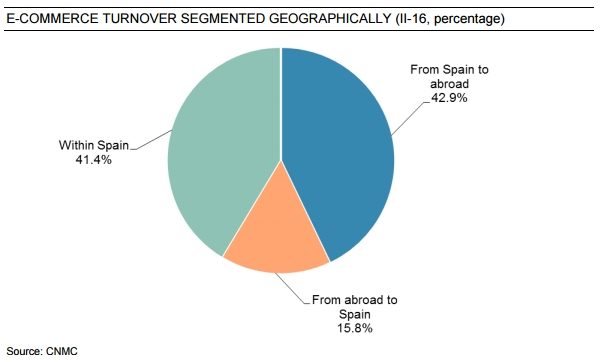With the rise of the digital age it is no surprise that businesses worldwide are having to adapt to their respective markets and whilst some have found this challenging, others are thriving. With many British ex-pats moving to Spain, how are Spanish digital businesses doing compared to those in the United Kingdom?
More and more people worldwide are turning to the internet for news largely driven by social media and as a consequence sale of newspapers are on the decline both locally and world-wide. This has led to many newspapers going online to deliver their content to their readers. In 2003, The Guardian reported that more than 55% of Britons get their news online, and that figure has only risen since.
One dilemma facing the newspaper industry is how to make online publication financially viable. One model is to use subscriptions to generate revenue but as consumers worldwide can get news for free elsewhere on the internet, this strategy has only been successful with financial publications with very loyal readers. Another method would be to use embedded advertising to generate revenue which would drastically reduce the profits of the newspapers. This applies to both Spanish and British newspapers. Ironically, the demand for news is increasing whilst sales of newspapers are decreasing leading to national and local newspapers having to transition to online-only.
Image Source: Pixabay
E-commerce is a rapidly growing industry in Spain now that the country is well on its way to recovery from the recession. 41% of the population is already shopping online with 61% of those willing to purchase from abroad. This trend only looks to increase as more of the country become tech savvy. Spain still as a way to go before they Catch up with the United Kingdom however as (according to the Daily Mail) 82% of internet users in the United Kingdom shop online. More so than any of the other European member states. By the end of 2017, the E-commerce Foundation have forecast that e-commerce in the United Kingdom will be worth an astounding €197b.
Image Source: ecommercenews.eu
The online gambling industry, also known as iGaming, continues to gain strength in Spain – and compared to last year the amount of growth is staggering. The DGOJ (Dirección General de Ordenación del Juego) has revealed as of the 28th of July 2017 online casino revenue has reached €42.9m which is up by 52% on the same period last year. In particular revenue from slots is us up by 84% on last year. Igaming is definitely doing very well in Spain.
By comparison, according to the UK Gambling commission igaming generated €5.38b for the year with casino sites such as slots, table games and live casino provider. Good example is online casino Mr Smith, that accounting for 29% of all gambling in the country. The convenience of online gambling accessible from a mobile device continues to make an impact on the way the British people are gaming. Land-based casinos and bookmakers are beginning to see a decline in the percentage of gambling revenue they are generating in house for example, the year end 2014/15 saw a 2% decrease and no new brick and mortar casinos were opened in the same year. In both Spain and the United Kingdom, iGaming is really taking off and the industries in both countries are benefiting from the move into the digital realm.
No matter where you are there is no escaping the fact that our lives, businesses and leisure time continues to be influenced by the internet.







